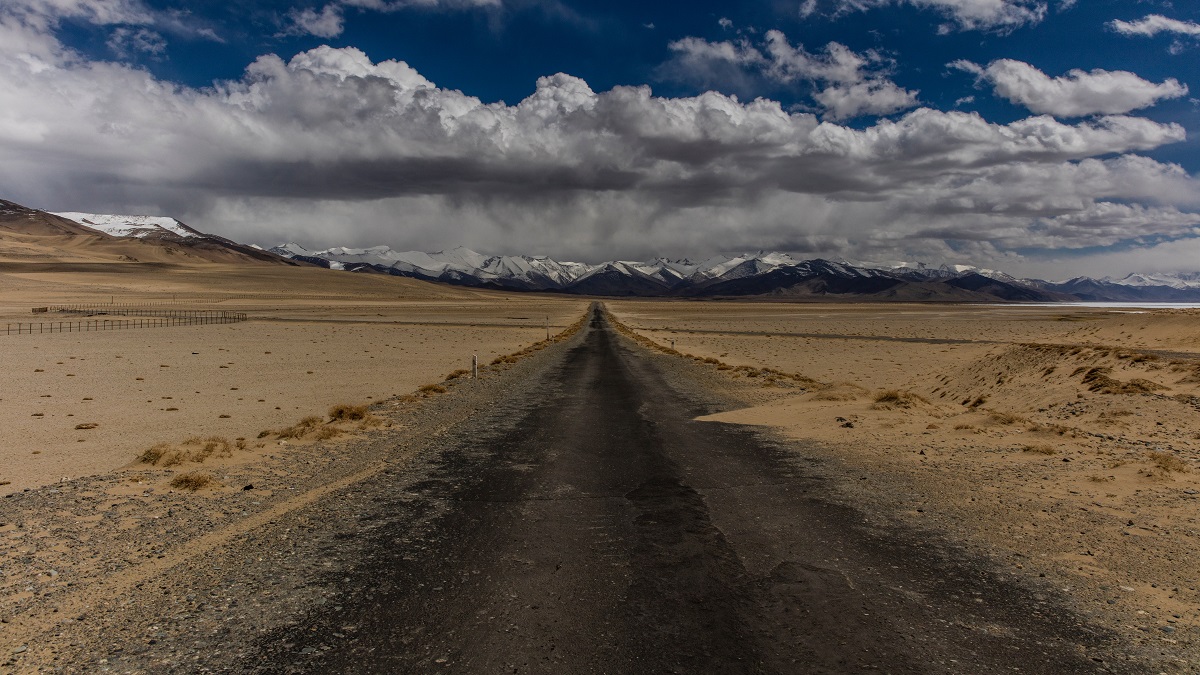Central Asia in search of agreements on roads
In Dushanbe, transport ministers are discussing an agreement to facilitate the overland movement of goods and people. But border disputes and conflicting interests between individual countries make this path fraught with obstacles. The major project of a China-Kyrgyzstan-Uzbekistan corridor competes with the East-West lines through Kazakhstan.
Dušanbe (AsiaNews) - The meeting of the transport ministers of the five Central Asian countries was held on 13 September in Dušanbe, in preparation for the summit of heads of state on 15-16 September, to evaluate the agreement on the "Strengthening of mutual relations of land transport".
The document will have to be signed by the presidents, and could constitute the most impactful topic of the entire assembly, beyond the many areas of negotiations.
Logistics is in fact one of the crucial problems of the entire economy of the region, both for the transport of loads by rail and trucks, and for the stimulation of real competition on the market of services linked to the movement of goods and people.
The final aim is the creation of international corridors, including intermodal ones, as explained in the statement released by the ministers via the Tajik agency Khovar.
Central Asia is trying to finally emerge from its historical state of isolation and backwardness, even if the specialist of the Russian International Research Institute, Alexander Knyazev, warns that the challenges to be faced are truly demanding: "for example, three of the five countries are not members of the Eurasian Economic Union (EAES), and the two members, Kazakhstan and Kyrgyzstan, are forced to observe customs rules on the borders of Uzbekistan, Tajikistan and Turkmenistan, creating a series of contradictions with the agreement proposed in these days".
Furthermore, already in recent weeks, Kazakhstan has limited transport from Kyrgyzstan as a result of vested interests linked to the distribution of water resources, a problem that is regularly renewed every three-four months.
The Kazakhs then tend to collect more tax revenues from the Kyrgyz, also to demonstrate Astana's loyalty to the anti-Russian sanctions regime to Western partners. According to Knyazev, "Kazakhstan has ceded its customs sovereignty to its American counterpart."
Even the border problems between Kyrgyzstan and Tajikistan are still far from reaching definitive solutions, despite the ongoing negotiations after the armed conflicts, and the borders between the two countries are still very closed, so much so that there are no direct flights between Bishkek and Dushanbe.
The agreements currently under discussion risk functioning in fits and starts between the various border lines, especially on those towards Uzbekistan, while Turkmenistan will, as always, remain rather reticent about openings.
Tajikistan's transporters currently have to take "endless" routes to bypass the territory of Afghanistan through Azerbaijan, the Caspian, Kazakhstan and Uzbekistan, and there are no guarantees that the new agreement will be signed, and then respected, by all five countries in the region.
Also last year, a declaration of intent “On friendship, good neighborliness and cooperation for the development of Central Asia in the 21st century” was signed, to which Tajikistan and Turkmenistan did not join.
The major underlying project is the China-Kyrgyzstan-Uzbekistan route, which is developed in competition with the East-West lines through Kazakhstan, although for now only in the automotive dimension.
When long-distance railway lines begin to be built, the conflicting interests will also involve Russia, which in turn has a great need to multiply communication routes with China, especially in the southern part through Xinjiang.
This would create a direct conflict between Moscow and Astana, which would risk losing the monopoly of this sector, with unpredictable consequences.
In any case, the development of cooperation in regional logistics will be inevitable, and is supported by the UN and the entire international community, apart from the USA and the EU, having great geopolitical significance in the turbulent phase we are going through.
The countries of Central Asia, with all their historical contradictions, can no longer do without them, somehow also dragging Russia, not only to unite East and West, but also North and South Asia, a dimension that is anything but secondary.







.png)










